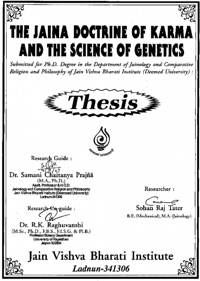It is a common misconception that genetic diseases are, by their nature, untreatable. This stems from a lack of understanding of the modifying effects of the environment on expression of the genotype. As in all medical therapy the treatment of genetic disease depends upon modifying the environment so that any harmful expression of the mutant gene can be counteracted. Thus in the disease phenylketonuria the expression of mutant gene is counteracted by putting the affected person on a diet low in phenylalanine. Similar dietary manupulations can effectively control many other inborn errors of metabolism. As a results of the developments in sometic cell and molecular genetics, researchers have elucidated the precise molecular defect in many genetic disorders, often making it possible to neutralize the defect by application of appropriate drugs or dietary changes. On occasion, surgeons can counteract the consequences of a mutant gene by using bone marrow, kidney or even liver transplants. The increased understanding of immune mechanisms involved in organ rejection has greatly increased the ability to transplant these tissues and organs. In other cases, surgical repair of physical defects can be extremely effective treatment. [53]
Footnotes
 Prof. Dr. Sohan Raj Tater
Prof. Dr. Sohan Raj Tater
 Doctoral Thesis, JVBU
Doctoral Thesis, JVBU